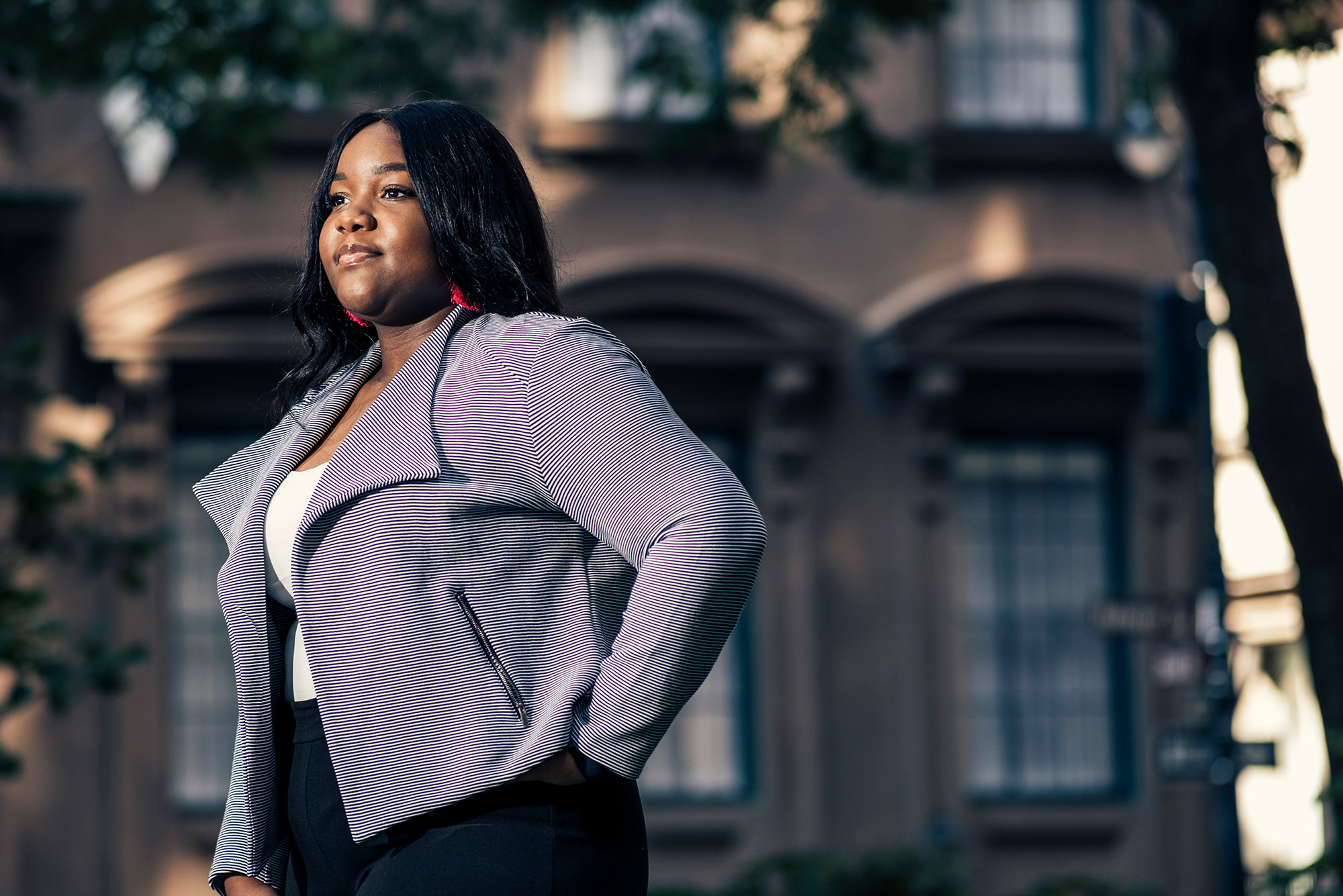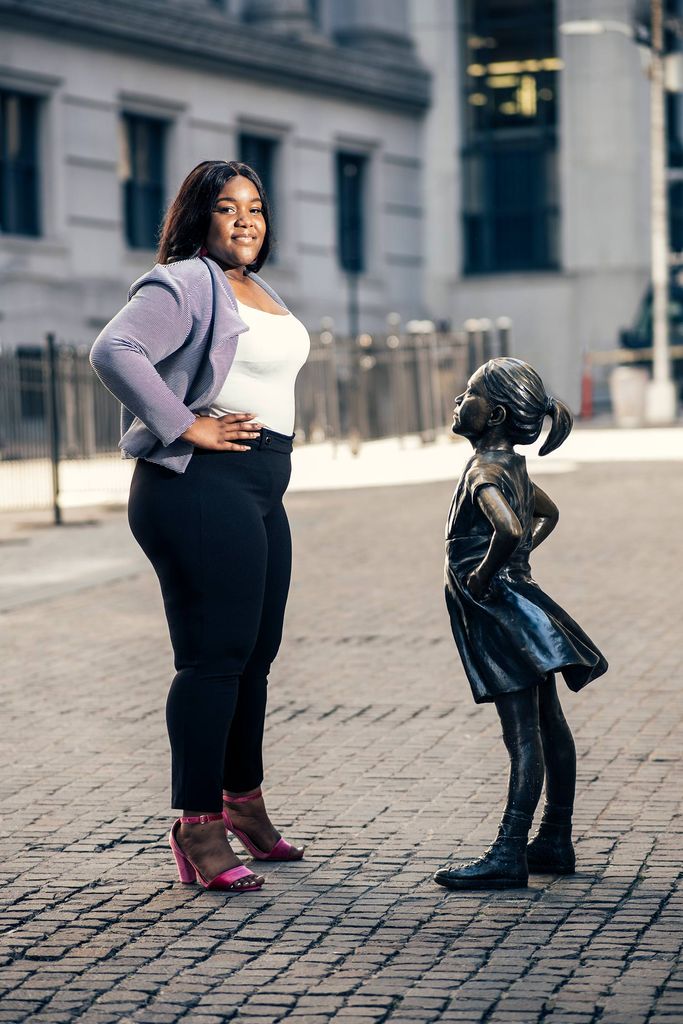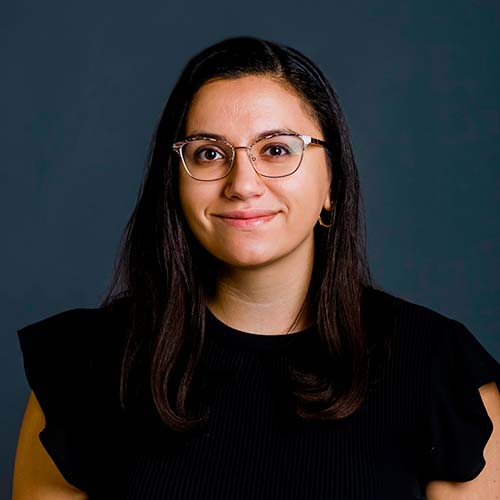Holding BU to Account on Race

Holding BU to Account on Race
Hayden Scholar Delice Nsubayi helped UMOJA, BU’s Black student union, become a powerful voice for racial equity
In 2019, BU’s Black student union, UMOJA, almost folded—it needed a president and no one was stepping up. Delice Nsubayi, then finishing up her freshman year, couldn’t let that happen. “I wouldn’t want a space that’s so important to Black students, especially Black students at a predominantly white institution, to be missing,” she says.
Nsubayi (CAS’22) wound up doing more than just saving the club by becoming its president. During the antiracism protests of spring 2020, Nsubayi helped organize a fundraiser for social justice organizations—it brought in more than $140,000, far beyond the goal of $10,000—and held the BU administration to account on issues of race. It’s more important than ever for UMOJA to be a prominent organization, she says. “Students of color need a place, and need events, where they can be in companionship with other people of color on campus.”
Nsubayi has made a dramatic impact at BU—but she almost didn’t apply.
Born in the Democratic Republic of the Congo, Nsubayi immigrated with her family to New York City’s South Bronx at the age of six. After attending middle and high school three blocks away from her home, she longed to attend college outside of New York and experience a new place. BU was high on her list, but she wasn’t sure how her family would afford the cost of tuition. The answer came when her high school nominated Nsubayi, her class’ salutatorian, for BU’s newly launched Hayden Scholars program. The program is a partnership between the University and public high schools in New York that receive funding from the Charles Hayden Foundation, a nonprofit that supports institutions and programming for children and youth in New York and Boston. Students admitted to BU as Hayden Scholars are paired with a mentor and have their full financial need met by the University. Nsubayi became part of the first cohort.
Students receive a mandatory class at the beginning of their freshman year on drugs, alcohol, on sexual assault. I think it’s also important that we receive education on racial sensitivity.
When she arrived at BU in fall 2018, Nsubayi was a biology major considering a future in the medical field. Two sociology classes changed her mind. She realized she was drawn to studying people and “all of the different layers that go into being human.” She switched majors—with some trepidation.
“I was scared that it would become emotionally draining to talk about things like race, gender, and poverty so much in my classes,” she says. “These are multiple parts of myself that I feel I can be disadvantaged in, and when you’re in predominantly white spaces, people sometimes turn to you to be the voice of your race in a way. But I’ve learned to find a balance between sharing my experience, and knowing there is more to studying sociology than just things like race, ethnicity, gender, and immigration. And there’s so much I can learn about other people as well.”

At the close of the spring 2020 semester, when her presidential term ended, Nsubayi ran for and became vice president of UMOJA. With the school year upended by COVID-19 and the widespread protests of police brutality against the Black community, she and the club’s other executive board members knew they had to speak out.
In June, the club partnered with BU’s student government to organize a GoFundMe campaign to raise money for the social justice organizations Black Visions Collective and the NAACP Legal Defense and Educational Fund in support of the push for racial justice. They started with a goal of $10,000, but wound up raising more than $140,000. Nsubayi has also spoken with the University administration about implementing race and diversity training for all faculty, staff, students, and BU Police Department officers and issuing a bias test to members of the BU community.
“Students receive a mandatory class at the beginning of their freshman year on drugs, alcohol, on sexual assault. I think it’s also important that we receive education on racial sensitivity,” she says.
Taking charge in the face of need is just a part of who Nsubayi is, says her Hayden Scholars mentor Marisa Milanese.
“Delice is very insightful. She is a real leader,” says Milanese, a College of Arts & Sciences Writing Program master lecturer. “I repeatedly tell her how impressive she is.”
The Hayden Scholars are a remarkable group of people. In addition to being exceptional students, they’re campus leaders. They’re actively changing our campus in ways that will benefit everyone.
The two have formed a close bond since Milanese ushered in the first cohort of Hayden students. “Marisa has been a blessing,” Nsubayi says, noting she can always turn to Milanese for advice, whether about switching majors, applying for internships, or even about paying a bill. “She saw things in me that I wasn’t even able to see in myself within a couple of months of knowing me, and she’s encouraged me a lot. She has been a rock for me since I entered college, from the first time we met.”
Milanese says the Hayden Scholars program, which now has three cohorts and a total of 19 students, also benefits BU.
“The Hayden Scholars are a remarkable group of people. In addition to being exceptional students, they’re campus leaders. They’re actively changing our campus in ways that will benefit everyone.”
Nsubayi is grateful for all her scholarship has allowed her to accomplish at BU and for the opportunity it has provided her to grow. Aside from her involvement with UMOJA, Nsubayi is a member of BU Naturally, the natural hair club on campus, and she works at BU Student Activities and BU Real Estate to pay for her expenses. She also started a side business, braiding and weaving her peers’ hair on campus. She says her time at BU has inspired her to consider a career in diversity and inclusion.
“At first, as a low-income Black person, coming from a low-income neighborhood, it was hard for me to acclimate,” she says. “I was having a tough time pinning down where my identity came into play in a space that didn’t seem like it was made for me. But I’ve really learned to make my own place here, and I’ve grown so much as a woman. I know myself so much more now.”

Comments & Discussion
Boston University moderates comments to facilitate an informed, substantive, civil conversation. Abusive, profane, self-promotional, misleading, incoherent or off-topic comments will be rejected. Moderators are staffed during regular business hours (EST) and can only accept comments written in English. Statistics or facts must include a citation or a link to the citation.